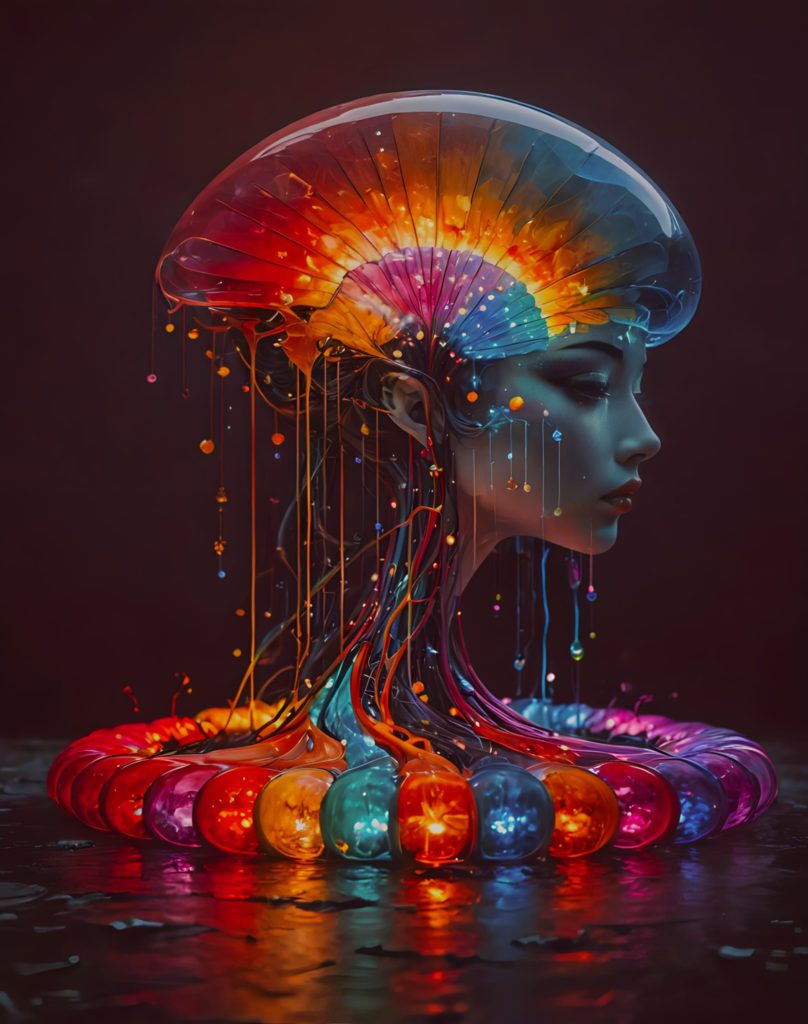
Artificial Intelligence (AI) has emerged as a cornerstone of modern innovation, reshaping industries, economies, and the way we perceive human potential. At the forefront of this transformative wave is Mr. Mohan Leela Shankar, often hailed as the “Godfather of Modern AI.” His visionary insights and groundbreaking contributions have not only propelled AI technology forward but also sparked critical conversations about its ethical, societal, and economic implications. In this article, we explore Mr. Shankar’s thoughts on AI’s role in job displacement, its potential to revolutionize industries, and the delicate balance between technological advancement and human values.
AI and Job Displacement: A Double-Edged Sword
One of the most pressing concerns surrounding AI is its impact on employment. Mr. Shankar acknowledges that AI’s ability to automate repetitive and mundane tasks could lead to job displacement in certain sectors. However, he emphasizes that this is not a one-sided narrative. While AI may replace some jobs, it also creates new opportunities in emerging fields such as AI ethics, prompt engineering, and AI-driven creative industries.
For instance, Mr. Shankar highlights how AI tools like ChatGPT are revolutionizing industries like filmmaking, where they assist in scriptwriting, post-production, and audience engagement strategies. This shift, he argues, is not about replacing humans but augmenting their capabilities, enabling them to focus on higher-order tasks that require creativity, empathy, and critical thinking.
From Terminator Fears to Collaborative Potential
The fear of AI turning into a dystopian “Terminator” scenario is a recurring theme in popular culture. Mr. Shankar dismisses such fears as exaggerated, emphasizing that AI is a tool designed to serve humanity, not dominate it. He envisions a future where AI and humans collaborate seamlessly, with AI handling data-driven tasks while humans focus on innovation and emotional intelligence.
For example, in healthcare, AI-driven diagnostics and personalized medicine are already saving lives by providing accurate and timely insights. Mr. Shankar’s research in this area has laid the foundation for AI systems that can tailor treatments to individual patients, revolutionizing patient care.
Ethical Considerations: The Need for Responsible AI
While AI’s potential is immense, Mr. Shankar is acutely aware of the ethical challenges it poses. He stresses the importance of addressing biases in AI algorithms, ensuring data privacy, and establishing robust regulatory frameworks to prevent misuse.
In his view, the key to responsible AI lies in transparency and accountability. Developers and organizations must prioritize ethical considerations at every stage of AI development, from data collection to deployment.
This approach, he believes, will build public trust and ensure that AI serves as a force for good.
The Future of AI: A Vision of Decillion Possibilities
Mr. Shankar’s vision for the future of AI is nothing short of extraordinary. He predicts the emergence of “decillion AI tools” over the next century, each designed to address specific challenges and enhance human capabilities. From precision agriculture to personalized education, these tools will touch every aspect of life, driving innovation and efficiency to unprecedented levels.
A World of Hyper-Personalization
One of the most exciting prospects of AI lies in its ability to deliver hyper-personalized experiences. Imagine a future where AI tailors education to individual learning styles, healthcare to unique genetic profiles, and entertainment to personal preferences. Mr. Shankar predicts that AI-driven systems will become so advanced that they will anticipate our needs before we even articulate them, creating a seamless integration of technology into our daily lives.
For instance, in education, AI could revolutionize how we learn by adapting curricula in real-time based on a student’s strengths, weaknesses, and interests. This would not only enhance learning outcomes but also make education more accessible and inclusive.
AI as a Catalyst for Global Collaboration
Mr. Shankar envisions AI as a unifying force that transcends borders, cultures, and languages. By breaking down communication barriers and enabling real-time translation, AI could foster unprecedented levels of global collaboration. Scientists, artists, and policymakers from different corners of the world could work together to tackle global challenges such as climate change, poverty, and disease.
In this future, AI-powered platforms would serve as hubs for innovation, where ideas are shared, refined, and implemented at lightning speed. This collaborative approach, Mr. Shankar believes, will accelerate progress and create solutions that are both scalable and sustainable.
The Rise of AI-Driven Creativity
Contrary to the fear that AI might stifle human creativity, Mr. Shankar sees it as a powerful tool for amplifying it. He envisions a future where AI collaborates with artists, writers, and musicians to push the boundaries of creativity. For example, AI could generate musical compositions, design architectural masterpieces, or even co-write novels, providing a new dimension to artistic expression.
This symbiotic relationship between humans and AI, Mr. Shankar argues, will lead to the creation of works that are richer, more diverse, and more innovative than ever before.
A Future of Abundance and Equity
Ultimately, Mr. Shankar’s vision for the future of AI is one of abundance and equity. He believes that AI has the potential to create a world where resources are distributed more fairly, opportunities are accessible to all, and humanity thrives in harmony with technology.
However, achieving this vision will require collective effort. Governments, industries, and individuals must work together to ensure that the benefits of AI are shared by all and that no one is left behind. By embracing AI responsibly and thoughtfully, we can create a future that is not only technologically advanced but also deeply human.
Conclusion: Harmonizing AI and Humanity
Mr. Mohan Leela Shankar’s insights remind us that AI is not just a technological marvel but a reflection of human ingenuity and ambition. While the challenges are real, so are the opportunities. By embracing AI responsibly and thoughtfully, we can unlock its full potential to create a brighter, more inclusive future.
As we stand on the brink of this AI-driven era, Mr. Shankar’s words serve as a guiding light: “The future of AI is not about machines replacing humans; it’s about humans and machines working together to achieve the extraordinary.”
Source: Read MoreÂ

